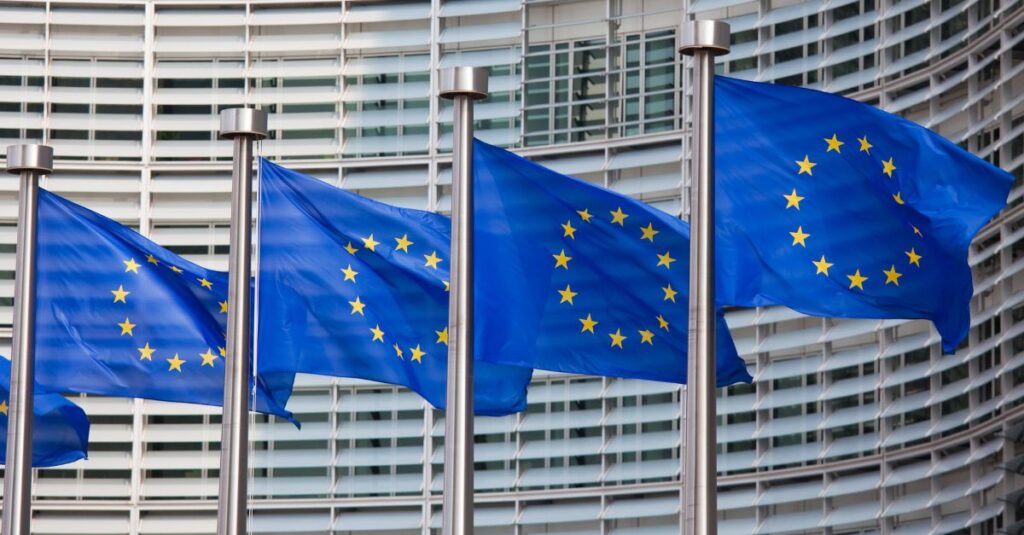13.11.2023
Practice Areas: Finance, Competition, Regulatory and EU, Intellectual Property and Information Technology
Digital Euro – ECB proceeds to the project’s preparation phase
On October 18th, the Governing Council of the European Central Bank announced that it would move forward with the preparation phase of the “Digital Euro” implementation process. According to the ECB communiqué, at the end of this phase the fundamental rules of the digital euro system should be established, with a view to allowing consideration and a future final decision on issuing a digital euro, once the European Union’s legislative process has also been completed.
This briefing note aims to shed light on the ongoing Digital Euro project, in particular its objectives, possible practical applications and the next steps in its development. There is also a brief reflection on the Proposal for a Regulation on the creation of the digital euro, put forward by the European Commission, and the consequences of this new means of payment for credit institutions and payment service providers.
- What is the Digital Euro?
The Digital Euro, as currently configured, would be an electronic payment method that would be available, free of charge, for widespread use in the Eurozone.
In its current version, the Digital Euro has the following characteristics:
- It is a digital payment method supported by the ECB;
- Universally accepted in the Eurozone and incorporated into the ATM network;
- Free of charge;
- Available both online and offline;
- Guaranteed security and privacy;
- Value guaranteed by the ECB, less susceptible to volatility.
The objectives behind the creation of the Digital Euro are diverse, but they all serve one ultimate purpose: to safeguard the role of public money by providing a digital alternative, consequently making the Eurozone more robust, innovative and competitive.
To understand the Digital Euro, it is important to distinguish it from cryptocurrencies and, in particular, from so-called stablecoins. Fundamentally, the Digital Euro is backed by a central bank, which guarantees its reliability and stability, but prevents its integration into a decentralized network and reduces its susceptibility to being used for investment or speculation.
Cryptocurrencies and stablecoins have different characteristics. The former generally incorporate the possibility of volatility in their value, which should not be the case with the Digital Euro. On the other hand, the stability and credibility of stablecoins depend on the entity behind their issuance and its ability to fulfill its commitment to maintain the value of the currency over time. In the case of central bank digital currencies, the strength of this commitment should be more resilient, helping to maintain their value.
- What are the possible uses of the Digital Euro?
According to the information provided by the ECB, the Digital Euro will have a wide range of uses, all with the aim of enabling payments and transactions to be made securely and ensuring a level of privacy similar to that of using cash.
In this sense, the main operations that can be carried out using the Digital Euro will be, for example, payments for goods or services, both in physical establishments and online, transactions between individuals and transactions to, from and between government institutions. Although these are the main uses that the European Central Bank has defined, there is scope to explore new and different uses for this digital form of the euro throughout its development project. These include the provision of digital wallets operated by the ECB to store and transfer the digital currency and integration with the physical ATM network or with the systems already provided by payment service providers.
- Timeline of the European Central Bank’s process
The European Central Bank’s CBDC (central bank digital currency) process began in September 2020 with a period of assessment of the technological feasibility of the project and resulted in conclusions that served as the basis for the research phase, which began in October 2021. This focused essentially on defining the format and general distribution conditions of a possible Digital Euro. The priority uses of the Digital Euro and the preferences and needs of the market were discussed, while the technical work on the market impact assessment was intensified.
The next phase, the preparation phase, which is now beginning, will focus on finalizing the set of rules for the Digital Euro and identifying service providers for the possible creation of a specific platform and infrastructure for the Digital Euro. The process will also include tests and experiments to ensure compliance with the Eurosystem’s technical prerequisites.
Alongside the technical work led by the ECB and national authorities, Digital Euro has been discussed regularly in both the Council and the European Parliament, both of which have expressed their support for the development of the project. The final decision on issuing a Digital Euro depends on the adoption of a legislative framework at the European level.
- European Commission’s Proposal
The legislative process for the Digital Euro was initiated by the European Commission, with the presentation of the Digital Euro Package, a legislative package made up of three proposals related to the Digital Euro:
1) Proposal for a Regulation on the creation of the digital euro;
2) Proposal for a Regulation on the provision of digital euro services by payment service providers incorporated in Member States whose currency is not the euro and amending Regulation (EU) 2021/1230 of the European Parliament and of the Council;
3) Proposal for a Regulation on the legal tender status of euro banknotes and coins.
The Proposal for a Regulation on the creation of the digital euro aims to introduce the digital euro as an addition to the existing currency, alongside physical banknotes and coins. It includes the fundamental elements of the design of the digital euro, considering its technological feasibility, with the aim of aligning it with the intended policy objectives, and enabling the European Central Bank to issue the digital euro in accordance with its mission and responsibilities.
This Commission Proposal is, for now, aligned with the ECB’s objectives, giving legal tender status to the Digital Euro, ensuring its universal acceptance and emphasizing concerns about guaranteeing a high level of privacy, while also referring to the need to comply with rules that minimize the risk of money laundering and terrorist financing, conceiving the digital euro as accessible, free of charge, throughout the Eurozone, also establishing the regulatory basis for fees on payment services and imposing limits on the use of the Digital Euro as a store of value.
With regard to payment service providers (“PSPs”), the Proposal explains, in an opening recital, that “in accordance with the authorization granted to them to provide payment services under Directive 2015/2366, all payment service providers (PSPs) authorized in the EU may provide payment services in digital euros, including additional payment services in digital euros, in addition to basic payment services in digital euros. Payment service providers do not need an additional authorization from their competent authorities to provide payment services in digital euros.” It is also stated that, regarding the distribution of the digital euro, PSPs must establish a contractual relationship with users.
Credit institutions that provide a payment account are also obliged to offer “the full range of basic payment services in digital euro to natural persons residing in Member States whose currency is the euro” at the request of their customers, according to Article 14 of the Commission’s proposal.
Banks and payment service providers will act as intermediaries, with responsibility for ensuring the distribution and provision of services related to the Digital Euro (without the need to obtain additional authorization). Among the services envisaged will be the creation of conditions for using and accessing digital euros, opening accounts, initiating and receiving payments, and issuing specific payment instruments.
This proposal is still a preliminary version. The next stages of the European Union’s legislative process, until final approval, will be lengthy and will probably alter this initial version published by the Commission.
For now, there is a clear political commitment to integrating financial operators (especially banks and payment service providers) into the Digital Euro project, which will be configured as an additional payment service to those already available. This novelty, coupled with the potential obligation to make basic payment services available with digital euros, should lead financial institutions to closely monitor the technical and legislative process underway, with a view to anticipating potential regulatory changes with an impact on their business.
- How is Portugal contributing to this project?
In order to monitor the process from Portugal, the Bank of Portugal has set up the Market Contact Group on the Digital Euro. The aim of this group is to promote discussion between different stakeholders with professional experience in the payments market. In this way, it is hoped to obtain stakeholders’ views on the impact of Digital Euro on various sectors of activity and on the opportunities that this project could bring to the Portuguese payments market. It is hoped that the results of the joint reflection will be communicated to the ECB, through recommendations that should reflect the impacts and objectives discussed in the national panorama.
- How can we help?
Banks and Payment Service Providers will play a key role in the distribution of this new form of the Euro. Digital Euro will involve, among other new features, the emergence of new forms of customer onboarding; the provision of wallet services; new means of online and POS payments; and the creation of advanced functionalities with programmable payments that will ultimately extend to all banking services.
Abreu Advogados has extensive experience in advising payment service providers, credit institutions, financial companies and branches of credit institutions and financial institutions. In this context, we have a team specializing in banking and finance law and technology that can help clients with the legal structuring of innovative products and business models within the framework of the Digital Euro legislation.














































